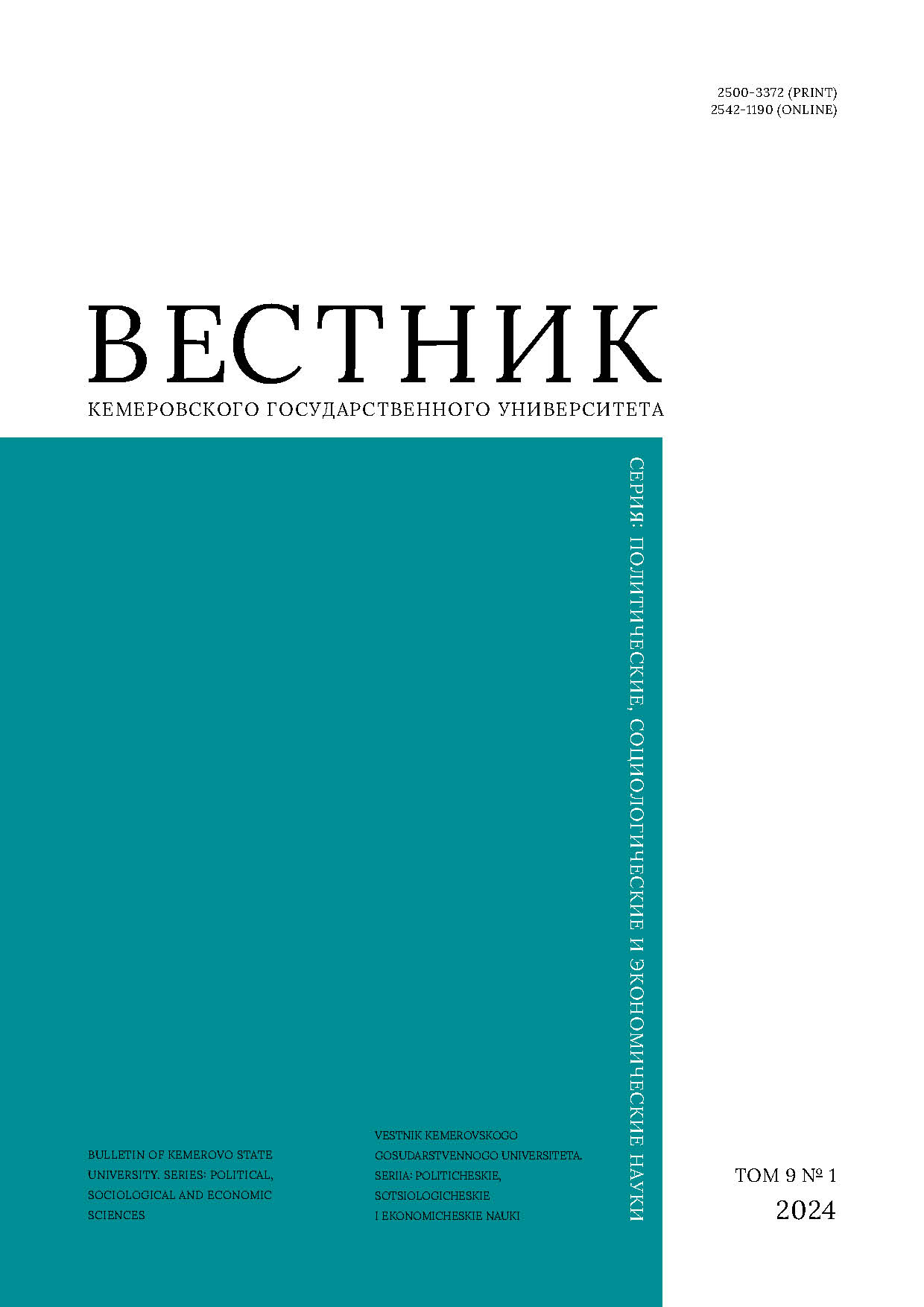Vladivostok, Vladivostok, Russian Federation
Kemerovo, Russian Federation
The article presents an approach to increasing labor productivity by evaluating the labor potential of an enterprise and subsequently developing a personnel incentive system. Labor potential is considered as the ability of human resources to increase their labor productivity by addressing hidden reserves, existence of which depends on internal and external factors. The authors present the results of a construction industry enterprise’s personnel survey. The employees assessed the organization of the labor process, the relationship between the team and departments, their own labor potential, as well as other aspects of their work. The results aim at determining the possible motives of employees to create a staff incentive system. Along with the motives of the staff, the incentive system should take into account the amount of possible labor productivity increase. Thus, it will correspond to the interests of both employees and the enterprise. The study proposes a methodology for assessing the personnel labor potential based on determining the strengths and weaknesses of the studied indicators. The methodology allows to identify promising areas for work with personnel and rationally allocate resources to stimulate labor potential, which, in turn, can reduce time costs and other expences.
labor potential, labor productivity, personnel incentive, labor organization, organizational culture, labor process, human resources
1. Fursov V., Krivokora E., Strielkovski V. Regional aspects of labor potential assessment in modern Russia. Terra Economicus, 2018, 16(4): 95-115. (In Russ.) https://doi.org/10.23683/2073-6606-2018-16-4-95-115 EDN: https://elibrary.ru/VPKIZE
2. Leonidova G. V., Panov A. M. Territorial aspects of labour potential quality. Problems of Territory’s Development, 2013, (3): 60-70. (In Russ.) https://www.elibrary.ru/qbnnin
3. Slinkova O. K., Grudistova E. G. Management of an organizational culture. Bulletin of SUSU. Series "Economics and Management", 2009, 1(21): 64-74. (In Russ.) https://www.elibrary.ru/kpofyb
4. Belkin V. N., Belkina N. A., Antonova O. A., Luzin N. A. Influence of corporate culture on innovative activity of employees of the enterprises. Ekonomika regiona, 2014, (1): 184-195. (In Russ.) https://doi.org/10.17059/2014-1-17 EDN: https://elibrary.ru/RWUUVJ
5. Trofimova N. N. The need to minimize personnel resistance to innovative changes in the management system of a high-technological enterprise. Upravlenie, 2020, 8(3): 73-80. (In Russ.) https://doi.org/10.26425/2309-3633-2020-8-3-73-80 DOI: https://doi.org/10.26425/2309-3633-2020-8-3-73-80; EDN: https://elibrary.ru/NPAAQB
6. Gromova N. V. Involvement of personnel as a key reserve of raising efficiency of today’s companies’ work. Vestnik Rossiyskogo ekonomicheskogo universiteta imeni G. V. Plekhanova, 2018, (6): 103-115. (In Russ.) http://dx.doi.org/10.21686/2413-2829-2018-6-103-115 EDN: https://elibrary.ru/YQDPRZ
7. Tretyakova E. P., Bazhenova M. I. Modern approach to evaluation of enterprise labour potential. Bulletin of SUSU. Series "Economics and Management", 2010, (7): 77-82. (In Russ.) https://www.elibrary.ru/mbfnzd
8. Pozdeeva N. R., Khakimova D. V. Increase of overall performance of the enterprise on the basis of improvement of labor potential management. Internet-zhurnal Naukovedenie, 2014, (2). (In Russ.) https://www.elibrary.ru/sjflwj
9. Levashov O. A., Burykin A. D. The ways to optimize system of personnel work stimulation in the organization. Ekonomika i upravleniye: problemy, resheniya, 2018, 5(11): 79-88. (In Russ.) https://www.elibrary.ru/vohqkz
10. Chekmareva E. A. Rising in labour potential: the role of wages. Economic and Social Changes: Facts, Trends, Forecast, 2011, (2): 140-146. https://www.elibrary.ru/ucdqej
11. Kiseleva I. A., Simonovich N. E. The role of motivation in effective companies. National Interests: Priorities and Security, 2015, 11(21): 16-24. (In Russ.) https://www.elibrary.ru/twnjth
12. Vasyaycheva V. A., Sakhabiev V. A., Sakhabieva G. A. On approaches to the management by competitiveness of industrial enterprises. Vestnik Samarskogo gosudarstvennogo universiteta. Seriia: Ekonomika i upravlenie, 2014, (4): 16-21. (In Russ.) https://www.elibrary.ru/sfdwmt
13. Konopleva G. I., Borshchenko A. S. Notion of human resources and their development strategy. Almanac of Modern Science and Education, 2014, (2): 86-88. (In Russ.) https://www.elibrary.ru/rurxvl
14. Sudakova E. S. Assessing the labor potential of personnel: approaches, methods, methodology. Internet-zhurnal Naukovedenie, 2014, (4). (In Russ.) https://www.elibrary.ru/tcfnhd
15. Kazmina I. V. Analysis of features of lean implementation in domestic enterprises. Sinergiia, 2016, (2): 42-48. (In Russ.) https://www.elibrary.ru/wanhtx
16. Kryshtaleva T. Yu. Assessment method of the state of labour potential in regions of the Russian Federation. World of Economics and Management, 2017, 17(3): 35-46. (In Russ.) https://doi.org/10.25205/2542-0429-2017-17-3-35-46 EDN: https://elibrary.ru/ZDMPYZ
17. Potudanskaya V. F., Trunkina L. V. Evaluation of the labor potential of the company personnel. Biznes. Obrazovanie. Pravo, 2011, (4): 96-101. (In Russ.) https://www.elibrary.ru/oymwnj
18. Bukhalkov M. I., Korobkova Yu. Yu. The strategy of production potential development on machine-building enterprise. Organizer of Production, 2009, (3): 53-58. (In Russ.) https://www.elibrary.ru/kzoiuh
19. Gurova I. M., Evdokimova S. Sh. Theory of generations as a tool for analysis, formation and development of labour potential. M.I.R. (Modernization. Innovation. Research), 2016, 7(3): 150-159. (In Russ.) https://doi.org/10.18184/2079-4665.2016.7.3.150.159 EDN: https://elibrary.ru/WMCJFJ
20. Shatalova N. I. The knowledge employee labor potential formation as a social problem. Discussion, 2011, (10): 152-157. (In Russ.) https://www.elibrary.ru/owcinp
21. Nosyreva I. G. Management of labor potential of the organization: strategic aspects. Ekonomika truda, 2018, 5(4): 1179-1194. (In Russ.) https://doi.org/10.18334/et.5.4.39616 EDN: https://elibrary.ru/VWMNCR
22. Malakhova A. A. The assessment of personnel of the organization on the basis of competence approach. The Social and economic and humanitarian magazine, 2016, (4): 90-103. (In Russ.) https://www.elibrary.ru/xbdtfn
23. Krivosheeva V. M., Zaitseva I. V. Effective governance of labour potential of the enterprise as a factor of increasing its competitiveness. Fundamental Research, 2015, (2-4): 754-758. (In Russ.) https://www.elibrary.ru/tlqymr
24. Ishmuratova D. F. Evaluation of job satisfaction in the context of the implementation of human capital. Izvestiya Ufimskogo nauchnogo tsentra Rossiyskoy akademii nauk, 2019, (3): 69-73. (In Russ.) https://doi.org/10.31040/2222-8349-2019-0-3-69-73 EDN: https://elibrary.ru/GHJVYG
25. Gaponenko T. V., Osadchaya N. A., Gavrilenko S. A. Value-based management of human capital of the organization. Natural Humanitarian Research, 2022, (40): 55-62. (In Russ.) https://www.elibrary.ru/ovxiia
26. Lazareva E. I., Gavrilova J. V. Effective management of the organization’s human capital in the context of sustainable and innovative development of the economy. Voprosy innovatsionnoy ekonomiki, 2020, 10(2): 737-746. (In Russ.) https://doi.org/10.18334/vinec.10.2.100937 EDN: https://elibrary.ru/DFUGII

















